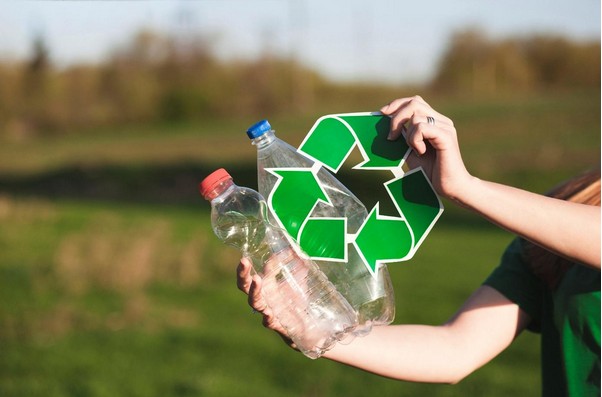Between 2022 and 2025, Portugal is facing major challenges in the field of municipal waste management, in order to meet the commitments made within the European Union and the objectives set out in the Strategic Plan for Municipal Waste (PERSU 2030).
European commitments and PERSU 2030
The European Union has set ambitious targets for waste management, including a recycling rate of 55% by 2025 and 65% by 2035. PERSU 2030, in line with these guidelines, sets national targets for waste prevention, reuse, recycling and reduction of landfill.
Recycling and landfill rates
In 2023, the recycling rate in Portugal was 32%, far from the 55% target set for 2025. Furthermore, in 2022, approximately 57% of municipal waste was landfilled, which highlights the continued dependence on this method of disposal.
We are therefore facing a complex scenario in which the coming years are critical for the adoption of measures that will allow Portugal to recover and get as close as possible to the objectives set.
To this end, various measures have been put in place with the main objective of diverting recoverable waste from landfill and improving the recycling rate.
Main measures implemented
Portugal has implemented several measures to achieve the recommended targets:
- Separate collection of bio-waste: Since 1 January 2024, municipalities have been required to implement separate collection of bio-waste. However, a report in June 2024 indicated “poor implementation” of this measure, with only 43% of municipalities implementing selective bio-waste collection, many of which did not cover their entire area of intervention.
- Selective collection of textile and hazardous waste: Scheduled for 1 January 2025, this measure faces significant challenges due to the lack of adequate funding for municipalities.
- Increase in the general waste tax (GWT): Aimed at discouraging dumping, the GWT increased from €11 per tonne in 2021 to €30 per tonne in 2024, with a forecast of €35 per tonne in 2025. However, the National Association of Portuguese Municipalities (ANMP) considers this increase “unacceptable” and is lobbying for its suspension, arguing that governments have not invested enough in alternatives to landfill.
Challenges of the population in waste management
Several factors contribute to the inadequate management of waste by the Portuguese population:
- Lack of environmental awareness and education: Although investments have been made to improve selective collection, undifferentiated collection will still account for around 80% of waste collected in 2022, indicating the need for greater public awareness.
- Inadequate infrastructure: The physical accessibility of the selective collection service is average or unsatisfactory in several areas, making it difficult for citizens to actively participate in waste separation.
- Lack of financial incentives: The increase in the GWT has caused concern among municipalities, which face financial difficulties in implementing effective waste management systems, which is reflected in their ability to provide adequate services to the population.
Despite the efforts and measures taken, Portugal continues to face significant challenges in the management of municipal waste. Meeting European and national targets requires not only investment in infrastructure and adequate funding, but also a change in the behaviour of the population, promoted through environmental education and continuous awareness raising.
Is PAYT the solution to achieve our goals?
The PAYT (Pay-As-You-Throw) system is an innovative approach to waste management that aims to make citizens financially responsible for the amount of undifferentiated waste they produce. This pricing model establishes a direct link between payment and waste production, providing an incentive to reduce production and increase recycling.
Models for implementing PAYT
There are several models for implementing PAYT, which can be adapted to the specific characteristics of each municipality.
- Bag programmes: Users purchase specific bags for undifferentiated waste, the price of which includes the cost of collection and treatment.
- Label/sticker programmes: Similar to the above, but using labels affixed to ordinary rubbish bags.
- Bin programmes: Residents choose the number and/or size of bins for weekly collection and are charged according to the volume or number of bins used.
- Hybrid systems: A combination of a fixed fee that allows a certain amount of waste to be deposited, with additional charges for excess waste.
- Weighing systems: These use vehicles equipped with container weighing systems and charge according to the weight of the waste deposited.
Implementation of the pay-as-you-throw system in Portugal
In Portugal, the implementation of the PAYT system has been progressive, with several municipalities adopting this model to promote more sustainable practices.
- Guimarães: Since 2016, it has implemented PAYT in the Historic Centre, covering around 800 users. The main objective was to increase selective collection and reduce the production of undifferentiated waste. The system uses prepaid bags for unsorted waste, while the collection of recyclable materials is free of charge.
- LIFE PAYT project: This European project tested tools and methods in five Portuguese municipalities, in the domestic sector as well as in commerce and services. The results showed the effectiveness of PAYT in reducing waste production and increasing recycling.
Legislation and targets
The Strategic Plan for Municipal Waste (PERSU 2030) identifies the implementation of PAYT systems as an essential measure to achieve recycling and waste reduction targets. Municipalities were originally required to implement PAYT systems by 1 July 2026, but a review of the legislation extended the deadline to 2030.
Challenges and recommendations
The implementation of PAYT faces challenges such as the need for adequate infrastructure, raising public awareness and adapting pricing systems. To ensure the success of the system, a gradual approach is recommended, starting with pilot projects and the development of information campaigns.
The PAYT system is therefore an effective tool to promote the reduction of waste generation and to encourage recycling in Portugal, in line with national and European objectives for sustainable waste management.


